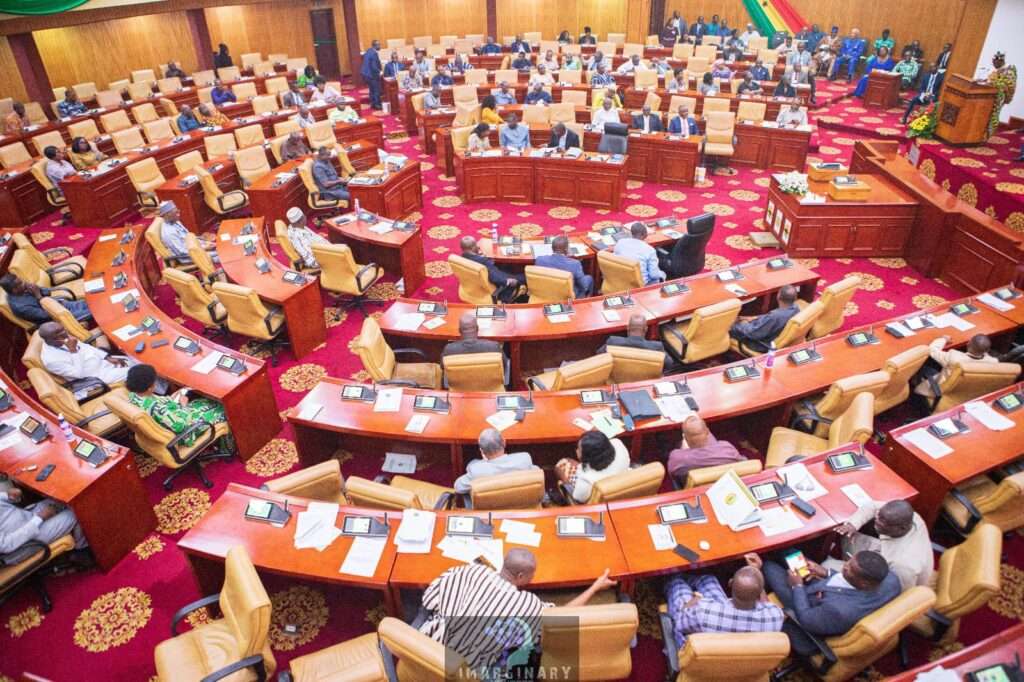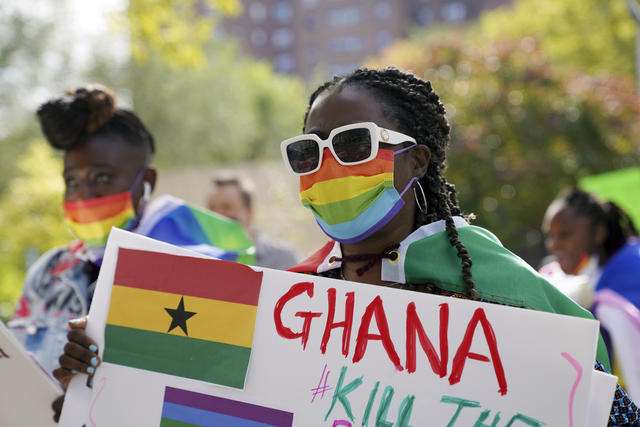Ghana’s recent decision to abstain from a United Nations Human Rights Council vote on LGBTQ rights has ignited a storm of criticism, with prominent legal minds accusing the government of hypocrisy and moral inconsistency.
The abstention has come under intense scrutiny, particularly from lawyer and human rights advocate Richard Dela Sky, who called out the government for its apparent failure to uphold the very values it claims to defend.
According to Dela Sky, the very essence of principles is their permanence and resistance to situational change.
However, he argued that Ghana’s conduct shows a contradictory reality where moral commitments appear to bend under political pressure.
“Who would have thought that Ghana—having so brazenly midwifed a draconian anti-LGBTQ bill, cloaked in the rhetoric of cultural absolutism, only for bold civic resistance to terminate it in utero, despite vile threats, unprintable attacks, and coordinated intimidation—would now shrink from the moment, lacking the moral fortitude to vote with equal conviction at the UN Human Rights Council?”
Richard Dela Sky
He argued that choosing to abstain from the vote should not be mistaken for taking a neutral stance.

Rather, it signals hesitation—or potentially a deliberate diplomatic tactic by a government whose rise to power was, in part, shaped by strategically using anti-LGBTQ+ rhetoric for political gain, not genuine belief.
According to Dela Sky, the legislation was never truly about upholding cultural or moral values.
Instead, it was a calculated move to manipulate public sentiment, fuel mass appeal, suppress opposition voices, and divert national attention away from broader challenges in governance.
Political Strategy Behind LGBTQ Law Questioned
Looking back on the fierce criticism he endured for contesting the anti-LGBTQ+ legislation in court, Richard Dela Sky offered a sharp observation on how public opinion and political agendas can evolve.
He highlighted how many of those who once vilified him—accusing him of undermining Ghanaian values—may now be witnessing a change in narrative driven not by principle, but by shifting political strategy.
“The lesson? Those who were narrow-mindedly nurtured, zealously brainwashed, and politically weaponized into insulting me for daring to challenge that obnoxious bill in court may now enroll in a crash course on new rights—and the quiet, ruthless logic of realpolitik.”
Richard Dela Sky
He observed that, in time, Ghanaians will come to recognize whether the bill being advanced by political leaders stems from genuine concern for public interest or is simply driven by political ambition and strategy. “Vindication, indeed, is in the womb of time.”

Meanwhile, Ghana’s Parliament recently reintroduced the anti-LGBTQ bill, signaling a renewed effort to see the legislation enacted. Originally passed in February 2024, the bill stalled when then-President Nana Akufo-Addo left office without signing it into law.
The legislation, officially titled the Human Sexual Rights and Family Values Bill, criminalizes same-sex relations with prison terms of up to three years and imposes up to five years for those involved in “willful promotion, sponsorship or support of LGBTQ+ activities.”
In December, the Supreme Court dismissed two lawsuits, including one filed by Richard Sky, that sought to block the legislation. The court ruled that the bill could not be declared unconstitutional because it had not yet been signed into law.
Since taking office in January 2025, President John Mahama pledged his support for the bill. He has stated he is “committed to passing the bill,” aligning himself with the broad public support it enjoys domestically.
However, the international community has widely condemned the bill for curtailing LGBTQ rights and potentially violating human rights conventions to which Ghana is a signatory.
Critics argue that the government’s silence on the global stage, as demonstrated by its UN abstention, undermines its own claims of principled governance.
While the government aggressively pushed the anti-LGBTQ bill at home, it avoided taking a stance when presented with a global opportunity to defend or oppose LGBTQ rights through the Human Rights Council vote.

Human rights observers and foreign policy analysts suggest the abstention may reflect a strategic move by Ghana’s government to avoid international backlash while still pursuing a controversial domestic agenda. Yet for many activists, this attempt to walk a diplomatic tightrope reveals deeper inconsistencies.
The diplomatic silence, they argue, is especially alarming given Ghana’s regional leadership status and its growing role in global diplomacy.
The country’s refusal to take a firm stand on LGBTQ rights at the UN, while pushing legislation that criminalizes same-sex relations at home, has sparked a renewed debate about authenticity, leadership, and the integrity of Ghana’s foreign policy.
For Dela Sky and others, the contradiction is untenable. The abstention, they argue, represents not a calculated balance, but a missed opportunity to either defend or reject policies with clarity and courage.
As Ghana prepares for continued parliamentary deliberations on the bill, the world will be watching—not just the legislative outcome, but the principles, or lack thereof, that shape it.
READ ALSO: Rishi Sunak Joins Goldman Sachs As Adviser




















